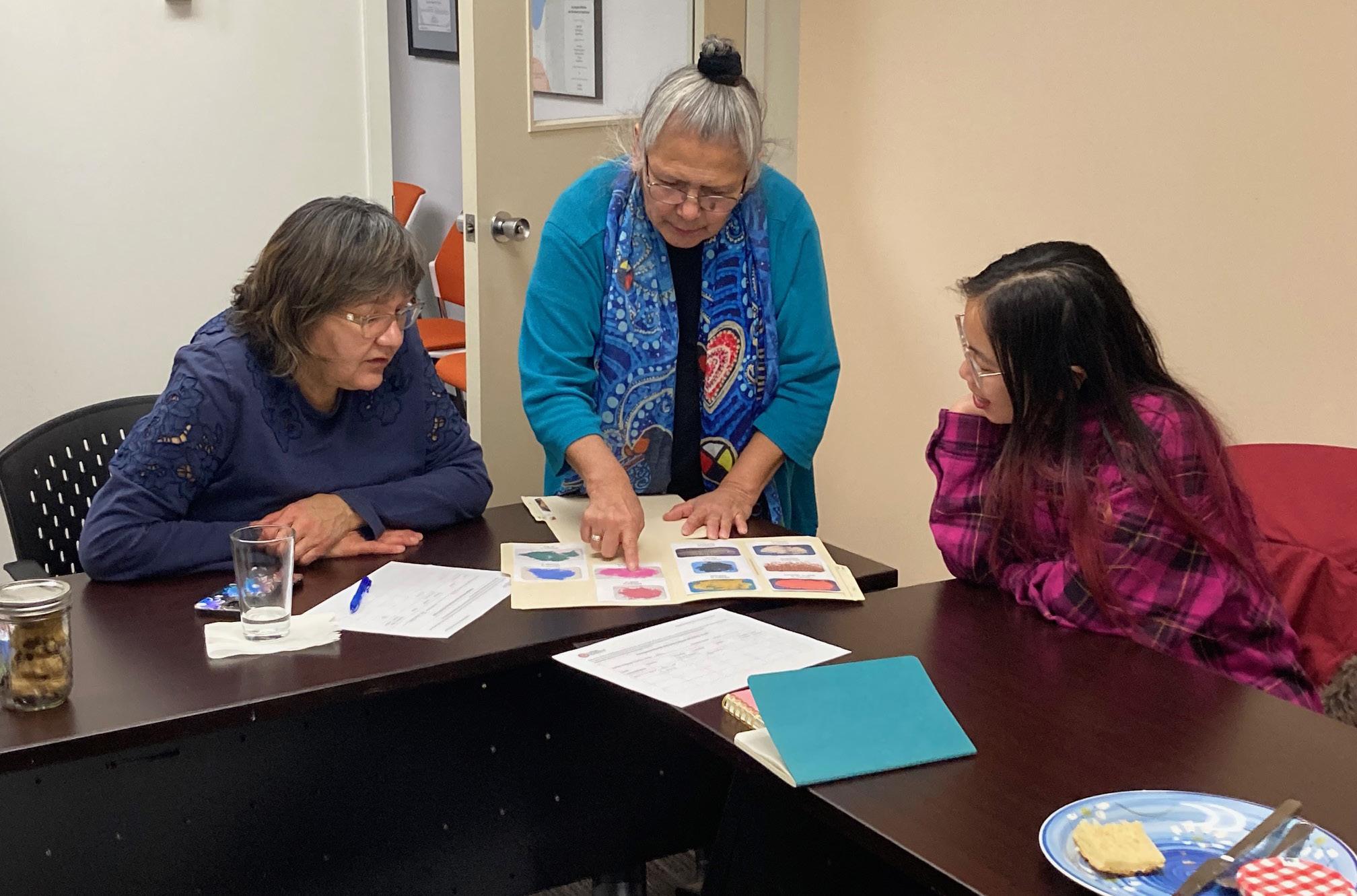
3 minute read
Aurora College fosters 83 grads
Transformation to polytechnic university makes headway; College Nordique Francophone registrations climb
By Derek
Eighty-three students graduated from Aurora College in 2021-22, four fewer than the 87 grads from a year earlier.
There were 39 certificates awarded, 28 diplomas and 16 degrees in 2021-22. Aurora College could not provide a breakdown of graduates by program, as has appeared in past editions of Opportunities North.
Total enrolment was 1,443 in 2021-22, a 13.3 per cent decline from 1,664 students the previous year. Enrolment has been falling since at least 2018-19, when there were just over 2,000 students.
The three main campuses across the territory — Aurora in Inuvik, Thebacha in Fort Smith and the North Slave campus in Yellowknife — all posted increases year over year in the number of full-time equivalent students in 2021-22. However, the number of people who registered in small communities fell by close to 40 per cent.
Examining the difference in enrolment by program, trades, apprenticeship and industrial training; health and human services; education; business and leadership; arts and science; and developmental students all showed increases in full-time equivalent participation in 202122, according to Aurora College. Continuing education had fewer students.
Overall, part-time students were more than double the number of full-time students.
A new program added in 2021-22 was the aviation business diploma, which includes a commercial pilot licence. It was established in partnership with Fort Smith’s Terry Harrold School of Aviation.
The college’s annual report notes that work is underway to re-establish the bachelor of education and social work programs within the next few years.
New research funding in the amount of $1.8 million was disbursed to Aurora Research Institute in 2021-22.
Government support
The GNWT is budgetting $34.8 million for Aurora College in 2023-24, which is essentially the same amount that the revised budget indicates the college absorbed in 2022-23.
The biggest portion of the GNWT funding over this fiscal year goes towards the delivery of programs on campus at $12.5 million. Spending on buildings and works is next at $7.3 million. Then comes $6 million for program delivery in the communities and $5.1 million for base operations.
The territorial government represented 78.3 per cent of the college’s financial support in 2021-22. Next came the Government of Canada at 8.6 per cent, third-party contributors at 4.1 per cent while tuition accounted for 3.9 per cent, among other, lesser sources of income.
The post-secondary institution closed 202122 with $55.9 million in expenses and $53.2 million in revenues, which resulted in an annual deficit of close to $2.7 million. That reduced the college’s accumulated surplus to $12.4 million from $15 million a year earlier.
Staff grows
Aurora College had a staff of 298 in 2021-22, 31.2 per cent of whom were Indigenous. There were 235 staff members in 2020-21.
Most employees — 151 — fell under support/ administration. Faculty numbered 118. Twenty-one were full-time students and eight were categorized as senior management.
Indeterminate positions added up to 222 while 48 were casual workers, 14 were on term and 14 were classified as relief.
Polytechnic progress
Work continues toward transforming Aurora College into a polytechnic university. As of March 15, 69 commitments and milestones were completed, 19 were in progress and 13 had not yet started. The GNWT anticipates that the polytechnic will launch in 2025.
College Nordique
The NWT’s French-based post-secondary institution, College Nordique had more than 500 registrations in 2022-23, including language classes in French, Tlicho, Spanish, English for newcomers and a new offering for early childhood educators. That’s up from 410 registrations in 2021-22.
The college is developing partnerships with post-secondary institutions such as the Université de l’Ontario français and the Université de Hearst, both based in Ontario. The institution is also collaborating with the Intercultural Centre NWT, which aids immigrants; the Yellowknives Dene First Nation, the Tlicho Government and the GNWT, among others.
Dechinta Centre for Research and Learning
Dechinta had 14 registrants for its 2022 summer term, 14 for the 2022 fall term and 45 for the 2022-23 winter term, for a total of 73. In 2021-22, the centre stated that there were 40 participants in total.
Dechinta offers land-based lessons in several remote wilderness locations. Activities may include discussing Dene political theory, learning about sustainable communities, harvesting medicines, tanning hides and making dry fish, as well as academic reading, writing and presenting.
Two new courses were introduced during winter 2023: living Dene laws and the other was Indigenous research methods and hide tanning. The institution has also forged a partnership with the University of British Columbia to offer a certificate in land and community-based research.










